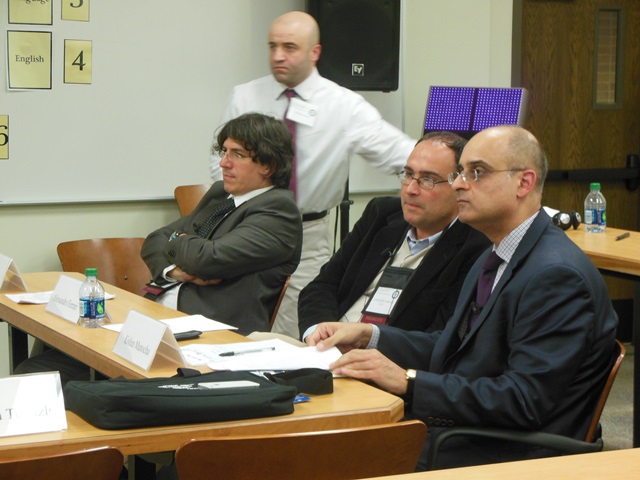Symposium 2014: Middle East and North Africa

Reported by Christina Champenois
Moderator: Shadman Bashir, Visiting Professor of Law and International Relations, History and Political Science Department, Dixie State University
Speakers: Lami Bertan Tokuzlu, Assistant Professor, Ýstanbul Bilgi Üniversitesi Dolapdere Kampüsü, Turkey; Alessandro Ferrari, Associate Professor, Department of Law and Economics of Films and Persons, University of Insubria, Italy; Kishan Manocha, Lecturer, University of East London School of Law, UK and School of International Law, Pakistan
Lami Bertan Tokuzlu focused on secularism and religious institutions. He discussed two prevailing models for religious institutions in European societies: (1) the public law entity, which gives churches extensive powers and allows them to receive financial support from the state but also results in close supervision and control by the state despite their autonomous status; and (2) the private entity, which means that churches have limited powers and do not receive as much support from the state but that they enjoy broad autonomy. Tokuzlu described the evolution of Turkish religious institutions, beginning with the Ottoman Empire, a theocratic state based on the norms of Islam. He concluded his presentation with a discussion of ECHR jurisprudence and its application to Turkish religious institutions.
Alessandro Ferrari proposed a framework for a comparative view of Europe and Mediterranean Islam. In Europe, religious freedom has always been connected with political power and subject to control by a strong political actor—the state. The European right to religious freedom assumes that religious freedom is primarily a matter of individual conscience. According to Ferrari, there is strong resistance to reasonable accommodations seen as contrary to the neutrality of the public space, and conservative pressures invoke the end of multiculturalism. South of the Mediterranean, bottom-up pressure invokes deep political change and more pluralism. He discussed ambiguities of the Islamic character of the state in the context of Egypt and Tunisia and presented Tunisia as a model of religious freedom.
Kishan Manocha spoke about the Bahá’í religious minority in Iran. He touched on social teachings of the Bahá’í faith, including the need for universal education and the equality of the sexes. Bahá’ís refrain from partisan political activity and are loyal to the laws of the land. Nevertheless, Bahá’ís have been intensely persecuted since the end of the nineteenth century. Their administrative order has been shut down several times. Bahá’ís have been expelled from public education and jobs in the public sector. They have been stripped of almost all their rights as citizens of Iran. The Bahá’í response to persecution stems from the conception of religious as a source of principles and values that, with science, advances civilization. Bahá’ís have established a history of advocacy and social action by appealing for justice for themselves and other oppressed groups through proper judicial channels.